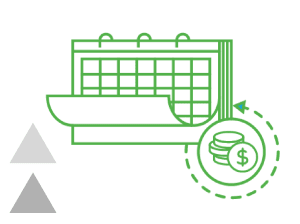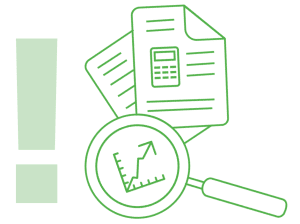What are the basic rules for conducting customs and tax inspections? This increasingly used procedure gives officials much greater powers than in the case of a regular tax audit. So what should you do in the event of unexpected action by the customs and tax authority? Karolina BARTKOWIAK-DUDZIK, Junior Tax Manager at RSM Poland, talked about this topic with "Dziennik Gazeta Prawna".
What is the scope of customs and tax inspection in Poland? Is there anything to fear?
It is difficult to say clearly whether there is anything to be afraid of, but it is certainly worth paying attention to a few issues to be able to sleep more peacefully.
Please note that customs and tax inspection is a type of procedure that was introduced in Poland in March 2017, along with the creation of the structures of the National Tax Administration. According to the assumptions adopted at that time, customs and tax inspections were aimed at detecting and combating organised tax crime and the most serious tax violations, such as VAT carousels. In practice, however, it turns out that this procedure may apply to any tax and affects an increasing number of entities conducting business activity in Poland.
So the initiation of a customs and tax inspection no longer means that we have definitely committed some serious offense and broken tax law? Do the tax authorities simply treat this procedure as another tool to check the legality of our activities?
Yes, it is another tool and – according to the report of the Ministry of Finance – the number of customs and tax inspections is gradually increasing. For example, in the first half of 2022, almost 2,000 such inspections were initiated – almost 300 more than in the same period of 2021.
Learn more about resolving disputes with tax authorities
And how great is the audit risk? And for what reasons may entities be subject to customs and tax inspection?
There are many reasons for initiating a customs and tax inspection, but it is worth noting that it has its own rules. The course of customs and tax inspection is characteristic and regulated by specific rules that do not appear in other procedures.
Firstly, customs and tax inspection is carried out by the heads of customs and tax offices on the basis of the provisions of the Act on the National Revenue Administration. Currently, there are 16 such offices in Poland – one in each voivodeship. This does not mean, however, that the area of operation of each office is limited to the voivodeship in which the office is located. What does this mean in practice? In fact, any customs and tax office – regardless of the voivodeship in which it is based - can both initiate and conduct an inspection anywhere in Poland.
Secondly, remember that in the case of a customs and tax inspection, the inspected entity does not receive prior information about the intention to initiate this procedure. Compared to regular tax audits, this is a big difference – the initiation of a customs and tax inspection takes place immediately when the entrepreneur receives the authorization to carry it out. Thanks to this, customs and tax authorities can immediately start verification activities, and taxpayers do not have the opportunity to prepare in advance for the customs and tax inspection.
And another thing that is also very important: in the case of customs and tax inspections, the control limits resulting from the Entrepreneurs' Law are not taken into account. What does this mean in practice? Well, the Entrepreneurs' Law provides that – as a rule, with the exceptions provided therein – the duration of all inspections at a given entrepreneur in one calendar year cannot exceed a specified number of days.
For micro-entrepreneurs it is 12 business days, for small entrepreneurs – 18 business days, for medium-sized enterprises – 24 business days, and for larger entities – 48 business days in a calendar year.
However, this regulation does not apply to customs and tax inspections, which means that the customs and tax authority may initiate such an inspection at a given entrepreneur even if the limit under the Entrepreneurs' Law has already been exhausted in a given calendar year.
The initiation of a customs and tax inspection is therefore a surprise for a taxpayer operating in Poland – it is impossible to prepare for it. What about the procedures during it? What is the course of customs and tax inspection?
It should be noted that the provisions of the Act on the National Tax Administration guarantee very broad rights to the officials who control us. Firstly, customs and tax authorities may, of course, demand the submission of documents related to the subject of the inspection, but – this is important and characteristic of customs and tax inspection – inspectors may also demand the presentation of files, documents and books that are in some way related to the subject of the audit, but refer to a period other than the audit period.
As part of a customs and tax inspection, officials may also interrogate the inspected person and witnesses. Inspectors have the right to enter the property belonging to the inspected person and move around it on the basis of an official ID card, without the need to obtain a pass.
Moreover, many doubts and controversies arise over the possibility of searching premises (including residential premises), even if the taxpayer does not conduct business activity in the premises. An inspection falling within the scope of customs and tax inspection may be carried out using technical devices and service dogs. Although the search of an apartment generally requires the prior consent of the prosecutor, in urgent cases it may be carried out without the prior consent of the prosecutor. Then such a search should be approved by the prosecutor.
The National Revenue Administration officers and the customs and tax service also have the authority to search people and to stop vehicles and perform other activities within the scope of the Road Traffic Law.
Tax inspection and customs and tax inspections therefore clearly differ in their course, and the latter definitely means greater problems and inconvenience. So what can an entrepreneur do to make this procedure as little troublesome as possible?
The most important thing is to know what rights and obligations rest on the controlled entity and the controlling entity. The old Latin maxim definitely applies here: ignorantia iuris nocet, i.e. ignorance of the law is harmful.
Our experience shows that in the case of many inspections, officials commit procedural violations that may affect the taxpayer's situation and even the result of the customs and tax inspection. In such a case, it is necessary to detect all these violations and shortcomings early enough and point them out appropriately.
Experienced attorneys with appropriate knowledge and experience are irreplaceable in this case. A taxpayer acting on their own may feel not only helpless, but even overwhelmed by the entire audit.
During a tax inspection, we can provide explanations and add our comments and conclusions at many stages... Is this also possible during a customs and tax inspection?
Of course. During a customs and tax inspection, the taxpayer has the right to actively participate in the proceedings. The most important thing is what happens after it ends.
Completion of the customs and tax inspection (i.e. all inspection activities carried out in the field of tax law) means that the inspection authority must prepare its result and include information on the irregularities found. What is important (and at the same time characteristic of customs and tax inspection) is the fact that the taxpayer is not able to present his own position, explanations or raise objections to the audit result. The taxpayer only has the option of submitting corrections to tax returns subject to inspection – within 14 days of receiving the inspection result.
If, despite the irregularities found during the customs and fiscal inspection, the correction is not submitted within the above-mentioned deadline (or the tax authorities do not take into account the submitted correction, for example because the correction does not cover all the issues indicated as a result of the inspection), then the customs and tax inspection will automatically transform into tax proceedings.
And who conducts these tax proceedings?
Tax proceedings that originate directly from customs and tax inspections are conducted by the same authority.
And this is an issue that should be paid attention to, because the tax proceedings will be conducted by the same head of the customs and tax office who issued a negative result of the customs and tax inspection for us. Moreover, so far it has been the case that if the taxpayer, after completing the tax proceedings, files an appeal, the case – once again – was considered by the same authority, i.e. by the same head of the customs and tax office.
This was an obvious departure from the principle of devolution: appeals were not considered by a higher authority, but by the same one that issued a specific decision. Fortunately, this regulation has changed – from July 2023, regulations entered into force, according to which an appeal against the decision of the head of the customs and tax office will be considered by the locally competent director of the tax administration chamber.
If an entrepreneur does not agree with the results of a customs and tax inspection and the resulting tax proceedings, can he somehow appeal against them?
Here, the procedural provisions are quite clear: a given case, from the moment the customs and tax inspection is initiated, is dealt with by the head of the customs and tax office, and in the event of a possible appeal by the taxpayer – by the director of the tax administration chamber. In turn, the taxpayer may file a complaint against the decision of the Tax Administration Chamber Director (which ends the tax proceedings) to the Provincial Administrative Court.
For this reason, our team of tax advisors that taxpayers carefully verify the actions of the authorities from the earliest stage – i.e. from the moment of initiating the customs and tax inspection, or maybe even earlier. On the one hand, this should reduce the risk of a negative decision for a given taxpayer, and on the other hand, ensure the protection of his or her own rights during an audit.
Taxpayers who decide to enter into a dispute with the tax office will face a difficult ordeal – must customs and tax inspections always end in such great problems?
Of course not. It is also impossible to provide a perfect recipe for dealing with such a situation. The taxpayer's behaviour in a given procedure depends on what the authority expects from us... It is worth remembering, however, that it is not always the case that the taxpayer is obliged to submit all documents, because sometimes the authorities go beyond their powers. Therefore, at every stage of any inspection, it is recommended to exercise extreme caution and use the help of people who are perfectly familiar with Polish tax regulations and the practice of tax authorities.





